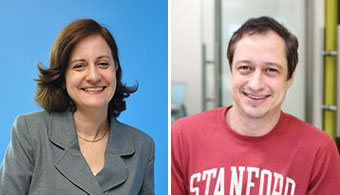
Roseli de Deus Lopes, Professor of University of São Paulo
STEM/STEAM at Basic Education in Brazil: Challenges and Opportunities
I intend to give an overview of what we have observed in different school and regional contexts, and also discuss the challenges and opportunities we face during and pós Covid-19 pandemia.
About Roseli de Deus Lopes: Associate Professor 3 at the Electronic Systems Engineering Department, Escola Politécnica, Universidade de São Paulo (EP-USP). She received the undergraduate, master, doctorate and post-doctorate degrees in Electrical Engineering from EP-USP. She is the vice-chair of the Instrumentation Center of Interactive Technologies at USP (CITI-USP). She was vice-chair (2006-2008) and director (2008-feb.2010) of Estação Ciência, a Center for Scientific, Technological and Cultural Dissemination of USP. She is a researcher at the Laboratório de Sistemas Integráveis (LSI) of EP-USP since 1988, where she is a principal investigator of the Interactive Electronic Media research group (which includes research in computer graphics, digital image processing, techniques and devices for human-computer interaction, virtual reality and augmented reality). She coordinates research projects in the area of Interactive Electronic Media, with emphasis on applications related to Education and Health. She coordinates scientific dissemination initiatives and projects aimed at identifying and developing talents in Science and Engineering. She was responsible for the design and feasibility of Febrace (Brazilian Fair of Science and Engineering), the biggest national pre-college science and engineering fair in Brazil. Since 2003, she acts as the general coordinator of Febrace. She is the current academic coordinator of the 'USP e as Profissões' program at USP. She is a member of the working group of technical and educational support for the program of one computer per student (UCA - um computador por aluno), sponsored by the Ministery of Education. She is a member of the deliberative council of the USP Museum of Sciences.
Rodrigo Barbosa e Silva, Postdoctoral Fellow, Stanford University
Ethical Implications of Emerging Technologies: Education, Public Policy, Computers, and Society II
Last year, I discussed the ethical implications of technologies in education (https://lemanncenter.stanford.edu/events/rodrigo-barbosa-e-silva). I argued that governments are not well-equipped to understand those implications. Also, I highlighted that computer systems are black boxes, and the current development of artificial intelligence techniques reinforces those trends.
The new coronavirus disease brought new challenges to education. EdTech practitioners and researchers usually have to defend the educational aspects of digital technologies in schools. Surprisingly, during the COVID-19 crisis, technologies are "tools for salvation". I will discuss pessimistic and optimistic views regarding technologies and education. I will show how the Brazilian public policy addresses these issues.
Additionally, I will address the most urgent need in the context of computers and pandemics: the digital gap. In a time where students do not have access to school resources such as libraries and computer labs, the digital gap constitutes another barrier for low-income and excluded children.

